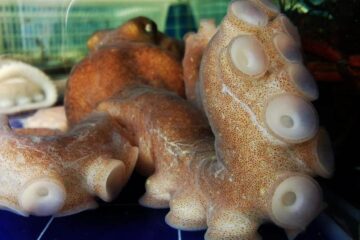Finding shows potential way to protect neurons in Parkinson's, Alzheimer's, ALS

The researchers, from The University of Texas Health Science Center San Antonio, found that neurons lacking a substance called caspase-2 were better able to withstand pesticide-induced damage to energy centers known as mitochondria.
Master switch
Caspase-2 appears to be a master switch that can trigger either cell death or survival depending on the amount of cellular damage, the team found. Neurons that lacked caspase-2 showed an increase in protective activities, including the efficient breakdown of obsolete or used proteins. This process, called autophagy, delays cell death.
“This research shows, for the first time, that in the absence of caspase-2 neurons increase autophagy to survive,” said study co-author Marisa Lopez-Cruzan, Ph.D., investigator in the cellular and structural biology department at the Health Science Center.
Role of energy centers
Evidence suggests that mitochondrial dysfunction plays an important role in neuronal death in conditions such as Parkinson's disease, Alzheimer's disease, amyotrophic lateral sclerosis (ALS, or Lou Gehrig's disease) and Huntington's disease.
“Identifying initiators in the cell death process is important for determining therapeutic approaches to provide the maximum protection of neurons during neurodegenerative conditions,” said senior author Brian Herman, Ph.D., vice president for research and professor of cellular and structural biology at the Health Science Center.
Young adult mice
The team studied neurons from young adult mice. This was intended to model the early changes that take place in neurodegenerative diseases.
The research is in the March 11 issue of the Journal of Biological Chemistry.
Dr. Lopez-Cruzan, director of Dr. Herman's laboratory, came up with the idea that caspase-2 protects cells from mitochondrial stress. Meenakshi Tiwari, Ph.D., postdoctoral fellow, expanded upon the initial work and is first author of the paper.
The work was supported by the National Institute on Aging and is part of a second National Institutes of Health MERIT award to Dr. Herman.
On the Web and Twitter
For current news from the UT Health Science Center San Antonio, please visit our news release website or follow us on Twitter @uthscsa.
About the UT Health Science Center San Antonio
The University of Texas Health Science Center at San Antonio, one of the country's leading health sciences universities, ranks in the top 3 percent of all institutions worldwide receiving U.S. federal funding. Research and other sponsored program activity totaled $228 million in fiscal year 2010. The university's schools of medicine, nursing, dentistry, health professions and graduate biomedical sciences have produced approximately 26,000 graduates. The $744 million operating budget supports eight campuses in San Antonio, Laredo, Harlingen and Edinburg. For more information on the many ways “We make lives better®,” visit www.uthscsa.edu.
Media Contact
More Information:
http://www.uthscsa.eduAll latest news from the category: Life Sciences and Chemistry
Articles and reports from the Life Sciences and chemistry area deal with applied and basic research into modern biology, chemistry and human medicine.
Valuable information can be found on a range of life sciences fields including bacteriology, biochemistry, bionics, bioinformatics, biophysics, biotechnology, genetics, geobotany, human biology, marine biology, microbiology, molecular biology, cellular biology, zoology, bioinorganic chemistry, microchemistry and environmental chemistry.
Newest articles

Octopus inspires new suction mechanism for robots
A new robotic suction cup which can grasp rough, curved and heavy stone, has been developed by scientists at the University of Bristol. The team, based at Bristol Robotics Laboratory,…

Peptides on Interstellar Ice
A research team led by Dr Serge Krasnokutski from the Astrophysics Laboratory at the Max Planck Institute for Astronomy at the University of Jena had already demonstrated that simple peptides…

A new look at the consequences of light pollution
GAME 2024 begins its experiments in eight countries. Can artificial light at night harm marine algae and impair their important functions for coastal ecosystems? This year’s project of the training…





















